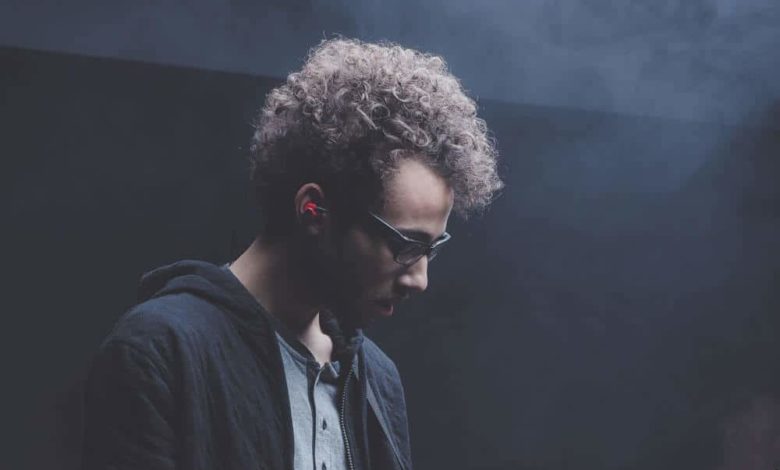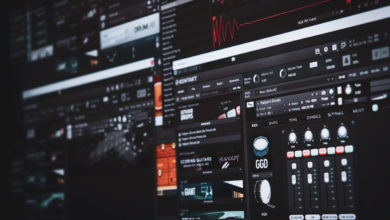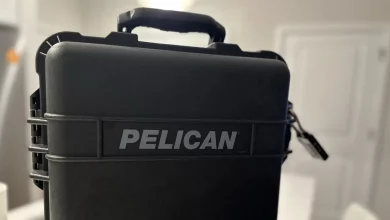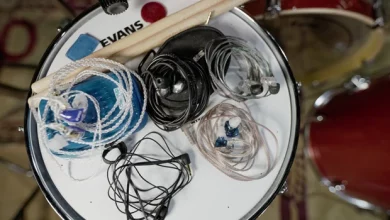
We may earn a commission from the affiliate links on this site. Learn more›
Let’s face it.
Most concerts and rock shows are extremely loud. I’ll bet most of the time after a show you head home with ringing in the ears. Temporary deafness is not something you should take lightly.
It may not seem like a big deal for now, as your hearing returns to normal the next day. I’ve heard it a million times.
“Wearing earplugs is for boring people and muffles the sound, ruining the concert experience!” Well, fear not, as today we are talking about high fidelity earplugs.
In a rush? We like earplugs from Eargasm.
First, I’d like to address the common misconception that only boring people wear earplugs. Since I’m in this business, I’d just like to let you know that it’s strange when people don’t wear earplugs.
Photographers, sound engineers, stage managers, tour managers, technicians, all wear earplugs and carry them with on tours.
A typical rock concert PA system can output upwards of 120dB, similar to that of a chain saw. Noise-induced hearing loss is one of the most common ways you can go deaf.
Our sense of hearing is one of those things where you don’t realize what you had until its gone. Wearing proper ear protection now will protect against hearing loss and will enhance your quality of life as you begin to age.
Why protect your ears at all?
Disclaimer — I am not a medical professional and the topics discussed below are my opinions from my experience using earplugs as a musician and from what I have read.
When you listen to loud music, even though you may not notice it, the nerve transmition is altered permanently.
Dr. Eric Smouha notes that this type of damage is not initially picked up during a normal hearing test.
Your hearing is an essential and valuable component of being a musician.
But even if you aren’t a musician, hearing loss provides a lower quality of life and can produce poorer relationships with those you love the most.
How to tell if you have hearing loss
Seeing an audiologist is the first step in identifying a hearing problem. According to Dr. Tel Brown, 10% of the United States population currently has some sort of hearing loss.
Tinnitis, or ringing in the ears, is the biggest warning sign for hearing loss.
Hearing loss happens over time, much after damage has taken place. Noise induced hearing loss does not manifest itself until much later in your life.
Most people generally begin to notice problems in their 50s and 60s. Doctors advise starting with prevention at a much earlier age.
There was a tremendous life story I watched on YouTube of a woman who is currently dealing with severe hearing loss.
I wouldn’t wish this on my worst enemies. She is currently completely deaf and has be losing her hearing over the last ten or so years.
Unfortunately, the video has since gone private.
Early on in her life, she was not diagnosed properly and actually was mistreated in a doctor’s office when the doctor used the same tool for looking inside her one infected ear on the other, infecting it as well.
It’s a very sad, but powerful story, and we should all appreciate our hearing more.
Can headphones cause hearing loss?
Yes, especially if you listen to loud music for long periods of time on small in ear buds.
Using ear buds, like the ones that ship with the iPhone, poses one of the biggest risks to your hearing if you are not careful.
Why is this? Since these types of headphones are directly inside of your ear canal, there’s nowhere for sound to escape except towards your ear drum.
Cranking these up loud can be just as damaging as being next to a loud speaker at a rock concert.
With anything listening medium, regardless of the type, you absolutely can do permanent damage.
Other things that can cause hearing loss
- Rolling the windows down while driving
- Prescription medications
- Smoking
- Your own instrument
- Loud machinery
- Sirens
- Loud music venues
How do you know if a concert is too loud for your hearing?
Any major concert with a big PA system is generally going to be loud enough to damage your hearing.
Depending where you are inside of the venue will definitely play a role. If you are in the back of the room, far away from the speakers, you’re probably fine.
However, if you’re up close next to the main speakers and the stage, you definitely need to be wearing some sort of hearing protection, whether its your favorite pair of high fidelity earplugs or a set of big cans.
Most concertgoers are unintentionally doing damage to their hearing that won’t surface until they are much older.
Audiologists say that it takes only one really loud concert to damage your hearing.
One way to determine if an environment is damagingly loud is with your smartphone.
There are many apps on the iOS store that measure decibel levels. Any of these apps will work just fine if you’re trying to determine if a certain environment is safe for no hearing protection.
Anything above 85dB is considered to be dangerous. Be sure not to spend more than one hour in this situation without protection.
If you’re in a loud area, like at a concert, sound levels will be well over 100dB.
Do not spend more than one minute over 100dB, as this puts you at risk for permanent damage.
You can be realistic when determining if a certain environment is bad for your hearing. It’s easy to lie to yourself, but you definitely know when something is too loud.
High fidelity earplugs are perfect for almost all situations where you need to protect your ears.
Remember, once you lose your hearing, it’s gone forever. For now. I’ll be talking more about that later on.
Bringing children and infants to loud concerts
You might be wondering if it’s okay to bring your children of infant to a concert, wedding football game, or any other loud event.
Are these events ridden with dangerous levels on noise? For the most part, the answer is yes.
By using the SPL meter app, you can determine if the location you are seated in is too loud for your infant’s or child’s ears.
If the volume is above 85dB, consider relocating at the event if your little one doesn’t have ear protection.
Since younger children have smaller ear canals, the sound pressure is far greater when entering a child’s ear. For concerts, foam earplugs can be used for children five and up, generally.
Children who are younger than five may need ear muff protection, like something you’d see a marksman wearing at a range.
Can we reverse hearing damage with today’s technology?
While the answer has been a resounding no in the past decades, it seems that we may be on the right track to reversing noise-induced hearing loss.
Scientists have recently made a big breakthrough by successfully restoring the hearing in mice who were previously deafened.
Researchers manipulated the genes of mice. Their inner ears would now produce a specific type of protein: neurotrophin 3. These scientists then deafened the mice.
Approximately two weeks later, mice with more NT3 had better hearing than those who didn’t undergo the gene therapy.
Dr. Gabriel Corfas, who led this study, believes that this may be the treatment that could reverse hearing damage in humans.
The procedure will also be able to be done with a prescription drug, rather than gene therapy. Hopefully this is something we will all see in our lifetimes.
Alternatives to earplugs for musicians
If you’re thinking that earplugs aren’t going to cover all your needs as a musician, in ear monitors might be a better option.
Not only will IEMs provide substantial hearing protection, you’ll also be able to use them with a wireless system if your band ever chooses to implement one.
Have you tried high fidelity earplugs yet? Let us know in the comments down below. I love my pair and have used them on every tour I’ve been on.
They’re great for listening in on other band’s soundchecks, hanging out in the crowd during a show, and even sleeping in certain situations.




I have Eargasms, but still have ringing in my ears after drumming for a while. Does anyone else notice this? Don’t mean to down on the brand. Maybe I’m just using them incorrectly. I just don’t know what to do to protect my ears. Can’t give up drums. Thanks for any insight!
0